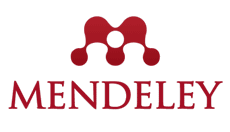Publication Ethics
The Finance and Business Management Journal (FBMJ) is a peer-reviewed national journal, available online and published twice a year, namely in June and December. This statement clarifies the ethical behavior of all parties involved in the act of publishing articles in this journal, including the author, chief editor, editorial board, peer-reviewer and publisher (Faculty of Economics and Business, Majalengka University, Majalengka, Indonesia). This statement is based on COPE's Best Practice Guidelines for Journal Editors.
Ethical Guideline for Journal Publication
Publication of an article in the peer-reviewed Finance and Business Management Journal (FBMJ) is an important building block in the development of a coherent and respected knowledge network. This is a direct reflection of the quality of the work of the authors and the institutions that support it. Peer-reviewed articles support and embody the scientific method. It is therefore important to agree on standards of expected ethical behavior for all parties involved in the act of publishing: authors, journal editors, peer reviewers, publishers, and the public.
Faculty of Economics and Business, Majalengka University as the publisher of the Finance and Business Management Journal (FBMJ) takes care of all stages of publishing seriously and we are aware of ethics and other responsibilities. We are committed to ensuring that advertising, reprint or other commercial revenue does not impact or influence editorial decisions. In addition, Majalengka University, and the Editorial Board will assist in communication with other journals and/or publishers if this is useful and necessary.
Publication decisions
The editor of the Finance and Business Management Journal (FBMJ) is responsible for deciding which articles are submitted to the journal for publication. The validation of the work and its importance to researchers and readers should always drive those decisions. Editors may be guided by the policies of the journal's editorial board and limited by applicable legal requirements regarding defamation, copyright infringement, and plagiarism. The editor may confer with other editors or reviewers in making this decision.
Fair play
Editors at all times evaluate manuscripts for their intellectual content without regard to the author's race, gender, sexual orientation, religious beliefs, ethnic origin, nationality, or political philosophy.
Confidentiality
Editors and any editorial staff must not disclose any information about submitted manuscripts to anyone other than the appropriate authors, reviewers, potential reviewers, other editorial advisors, and the publisher, as appropriate.
Disclosure and conflict of interest
Unpublished material disclosed in submitted manuscripts may not be used in an editor's own research without written consent from the author.
Duties of Reviewers
Contribution to Editorial Decisions
Peer review assists editors in making editorial decisions and through editorial communication with authors can also assist authors in improving papers.
Promptness
Any selected referee who feels unqualified to review research reported in a manuscript or knows that its rapid review is not possible must notify the editor and withdraw from the review process.
Confidentiality
Any manuscripts received for review must be treated as confidential documents. They may not be shown or discussed with others except as permitted by the editors.
Standards of Objectivity
The review must be carried out objectively. Personal criticism of the author is inappropriate. Referees must express their views clearly with supporting arguments.
Acknowledgment of Sources
Reviewers should identify relevant published work that has not been cited by the author. Any statement that an observation, derivation, or argument has been previously reported must be accompanied by a relevant citation. Reviewers should also call the editor's attention if there are substantial similarities or overlap between the manuscript under consideration and other published papers of which they are personally aware.
Authorship of the Paper
Authorship should be limited to those who have made a significant contribution to the conception, design, execution, or interpretation of the reported study. All those who have made significant contributions should be listed as co-authors. Where there are others who have participated in certain substantive aspects of the research project, they should be acknowledged or listed as contributors. The corresponding author should ensure that all appropriate co-authors and no inappropriate co-authors are included on the paper, and that all co-authors have seen and approved the final version of the paper and have agreed to its submission for publication.
Disclosure and Conflict of Interest
Privileged information or ideas obtained through peer review must be kept confidential and not used for personal advantage. Reviewers should not consider manuscripts in which they have conflicts of interest resulting from competitive, collaborative, or other relationships or connections with any of the authors, companies, or institutions connected to the papers.
Fundamental errors in published works
When an author discovers a significant error or inaccuracy in his/her own published work, it is the author’s obligation to promptly notify the journal editor or publisher and cooperate with the editor to retract or correct the paper.













